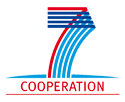Search
MoDES: Model Driven Development of Inteligent Embedded Systems
Embedded systems are a modern technology that is rapidly changing our society. Intelligence, in the form of software and hardware, is introduced into all kinds of products and artifacts with the objective of enhancing their functionality. In order for the industries to meet this demand in an efficient and predictable manner, their design engineers must master a complex set of constraints related to hardware, software, and reconcile them with the specific needs of the application in the overall product.
The sheer complexity of future embedded devices is seriously challenging current development and maintenance practices, and new, integrating and scalable methods are urgently needed. The MoDES project will research, develop, evaluate and disseminate concepts, methods and tools that can be used to design dependable embedded systems that meet their requirements in a controlled and resource-efficient way using model-driven approaches. This means that design decisions, analysis, simulation, testing, code generation, on-line monitoring etc. are always based upon models that reflect the relevant aspects of the design. This requires tools and techniques to maintain, manipulate, combine, transform and analyze models in a coherent and meaningful way.
Modern embedded systems typically involve the monitoring and control of complex physical objects or phenomena using a number of hardware and software components. Examples of such systems are: flight control systems, medical devices, industrial pumps, industrial cooling and heating systems. The physical environment, the software and the hardware have to work harmoniously together in order for the embedded system to provide its desired functionality. The three system aspects constitute well-established research areas with their own set of concepts, models, tools, and research agenda (see Fig. 1):
- Control engineering: focuses on modelling of the behaviour of physical phenomena with the purpose of synthesising efficient control mechanisms for various operating regimes, The modelling uses mathematical techniques like differential equations and Markov chains supported by tools like Simulink, Matlab, Stateflow, or Mobius.
- Embedded software engineering has as goal to provide techniques for programming and validating distributed, fault-tolerant, real-time software. It generally uses formalisms such as temporal logic, various notions of state/event machines, timed automata, and program design notations like UML.
- Hardware engineering focuses on the design of the platform on which the application executes. The modelling covers the processing elements, buses and networks that carry out the desired functions of the system and may include the firmware (e.g. real-time operating system) which provides the application developer with a clean programming interface to the hardware. It is fundamentally based on combinatorial logic and state-event systems, and various higher order languages have been developed to support the design and analysis of digital circuits.
Though each of the above areas offers powerful modelling formalisms and supporting tools they are by and large developed independently favouring only certain aspects, while omitting others. This has the unfortunate consequence that it often becomes impossible to state, not to mention validate, overall properties of an embedded system.
- Login to post comments


